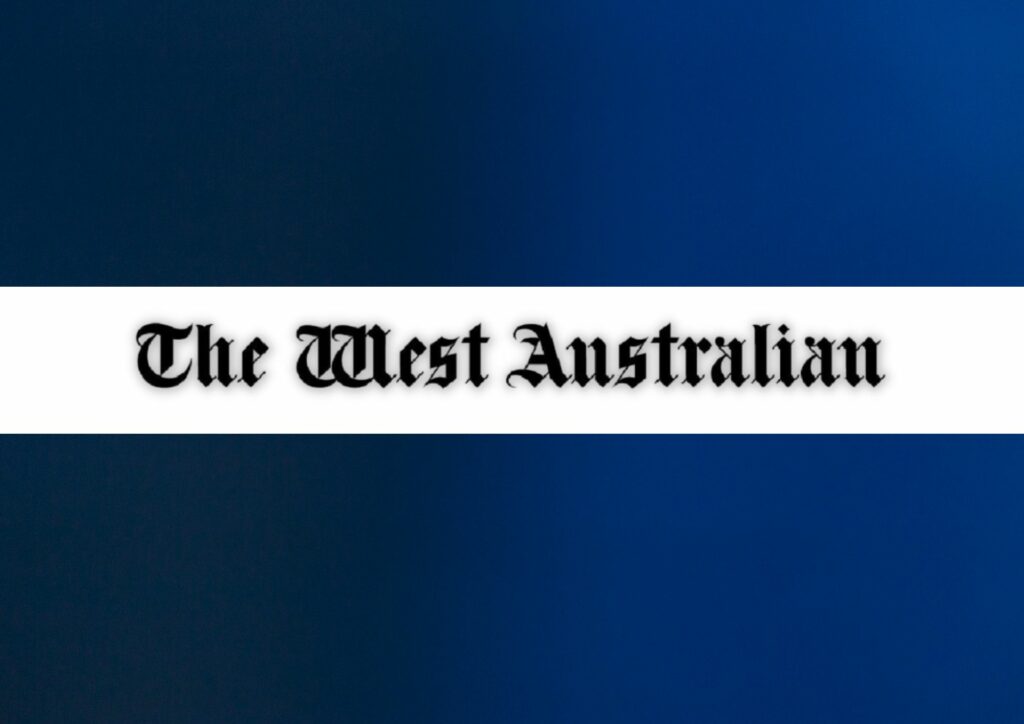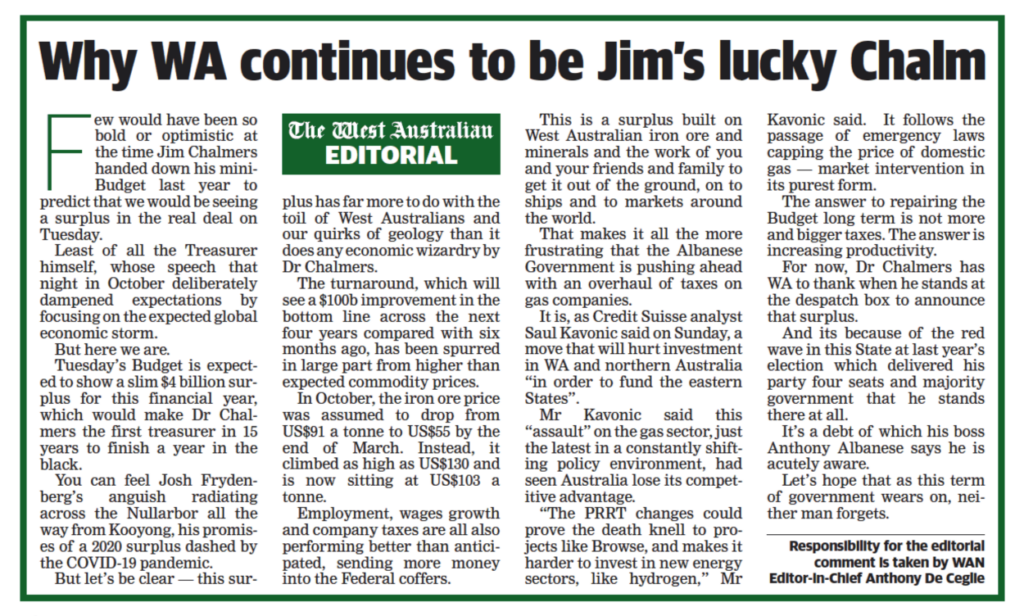
Editorial by WAN Editor-in-Chief Anthony De Ceglie.

Few would have been so bold or optimistic at the time Jim Chalmers handed down his mini-Budget last year to predict that we would be seeing a surplus in the real deal on Tuesday.
Least of all the Treasurer himself, whose speech that night in October deliberately dampened expectations by focusing on the expected global economic storm.
But here we are.
Tuesday’s Budget is expected to show a slim $4 billion surplus for this financial year, which would make Dr Chalmers the first treasurer in 15 years to finish a year in the black.
You can feel Josh Frydenberg’s anguish radiating across the Nullarbor all the way from Kooyong, his promises of a 2020 surplus dashed by the COVID-19 pandemic.
But let’s be clear — this surplus has far more to do with the toil of West Australians and our quirks of geology than it does any economic wizardry by Dr Chalmers.
The turnaround, which will see a $100b improvement in the bottom line across the next four years compared with six months ago, has been spurred in large part from higher than expected commodity prices.
In October, the iron ore price was assumed to drop from US$91 a tonne to US$55 by the end of March. Instead, it climbed as high as US$130 and is now sitting at US$103 a tonne.
Employment, wages growth and company taxes are all also performing better than anticipated, sending more money into the Federal coffers.
This is a surplus built on West Australian iron ore and minerals and the work of you and your friends and family to get it out of the ground, on to ships and to markets around the world.
That makes it all the more frustrating that the Albanese Government is pushing ahead with an overhaul of taxes on gas companies.
It is, as Credit Suisse analyst Saul Kavonic said on Sunday, a move that will hurt investment in WA and northern Australia “in order to fund the eastern States”.
Mr Kavonic said this “assault” on the gas sector, just the latest in a constantly shifting policy environment, had seen Australia lose its competitive advantage.
“The PRRT changes could prove the death knell to projects like Browse, and makes it harder to invest in new energy sectors, like hydrogen,” Mr Kavonic said. It follows the passage of emergency laws capping the price of domestic gas — market intervention in its purest form.
The answer to repairing the Budget long term is not more and bigger taxes. The answer is increasing productivity.
For now, Dr Chalmers has WA to thank when he stands at the despatch box to announce that surplus.
And its because of the red wave in this State at last year’s election which delivered his party four seats and majority government that he stands there at all.
It’s a debt of which his boss Anthony Albanese says he is acutely aware.
Let’s hope that as this term of government wears on, neither man forgets.
Responsibility for the editorial comment is taken by WAN Editor-in-Chief Anthony De Ceglie